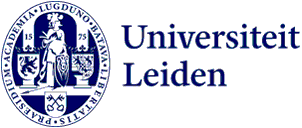
Dean Koen Caminada on budget cuts: ‘There’s nothing we can’t handle’
It’s still difficult to estimate what the consequences of the announced budget cuts will be. A week after Prinsjesdag, Dean Koen Caminada can already answer some questions from within FGGA. ‘We’re in a relatively good position, but the impact could be significant.’
You've read the Miljoenennota (Budget Memorandum). What can you tell us now about the cuts?
‘In the Budget Memorandum, some things are clearly outlined, and others not at all. There are plans in preparation that could significantly affect us, but it’s still hard to predict their impact, especially within FGGA. One example is the Internationalisation in Balance Act. The goal is to reduce the intake of international students, and for this reason, English-language programmes will be reviewed over the coming months through the English-language programme assessment.'
What impact could that have?
‘Potentially, it could have a big impact on FGGA. The bachelor’s programmes Security Studies (BaSS) and LUC are delivered in English. Since most BaSS students are Dutch, we would have to overhaul the programme – however complex that may be. If it must be done, it must be done. At LUC, the problems would be bigger if it doesn’t pass the review, as almost everyone there is from abroad. Who knows, maybe it will all turn out fine, but at this point, it’s impossible to say. I also can’t comment much on the process, as there is still a lot of uncertainty.’
What about the starter and incentive grants?
‘As FGGA, we will receive €1.3 million less for starter grants. It’s incredibly unfortunate that young people will no longer receive a basic package for starting their academic careers. They will have to enter into competition right away, and that brings uncertainty.
The incentive grants are for people further along in their careers. The government has been less clear on this; these grants are being partially phased out. Again, this is unclear. Whether we will lose the full €1.1 million we receive for these grants is uncertain, but we will likely lose a significant portion.’
A student asks: will the quality of education decline?
‘Yes and no. If we have less funding for the programmes we offer, it wouldn’t be fair to say it won’t have any effect. That would impact how we operate. On the other hand, we will adjust everything so that the work can be done as well as possible. This might affect the number of elective courses. If, in the long term, we can’t afford the honours programme, then that would be a loss of quality for that group of students. But 90 percent of students don’t follow the honours programme, so they wouldn’t notice a difference. We’ll all need to make smart choices, but that’s always the case.’
There are international staff or students wondering if they made the wrong choice. What would you say to them?
‘If students have started a programme, they will always be able to finish it. If we are forced by the English-language programme assessment to adjust the curriculum, those changes will only affect new cohorts. That certainly won’t happen within 2-3 years.
As for staff, I’d say: yes, you’ve made the right choice. Regarding language, there is a bit of an issue. We’ve always had the rule that international staff must reach a minimum level of Dutch. If you see your future here, it’s wise to work on that. The call for less English is coming from society, through politics, to us, and we must accept that. If you don’t want to or can’t, unfortunately, you might need to consider other options.’
Long-term study penalty
‘Universities are expected to charge extra fees to long-term students while receiving less funding from the government. It’s possible that universities will have to bear that cost themselves, but I can’t put a figure on it. How many long-term students do we have? And how much longer are they taking per person? It’s difficult to estimate. It’s definitely something to keep in mind.’
What about staff on temporary contracts?
‘There is no hiring freeze or increased chance that temporary contracts are terminated. We haven’t taken those kinds of measures, and we don’t plan to. Other faculties are doing that because their situation is more urgent. Our starting position is slightly better. We have budgeted everything up to 2028, so if someone leaves, they can be replaced if necessary. That’s in the budget.’
Our faculty is actually doing very well, as Gert Renkema, Head of Finance, has repeatedly mentioned. That’s the case again now.
‘That’s right. There’s nothing we can’t handle. We are in a better starting position, and we also have staff trained to adapt: change is the norm. They take on many new things and have proven themselves capable. That’s also why we’re in a good place. We’ve organised everything smartly and efficiently, such as offering one lecture instead of two variants, which also helps reduce workload. We’ve been careful to avoid expanding the curriculum excessively.’
Is that somewhat reassuring?
‘I can’t say this will pass us by. I can’t say, “go to sleep, everything will be fine.” We haven’t used blunt tools like hiring freezes. One thing is certain: we can keep the 2025 budget unchanged; we will carry it out as planned. More clarity on internationalisation will come in the coming months, so we’ll need to adjust the budget for 2027 and 2028. It’s just a matter of waiting.’
